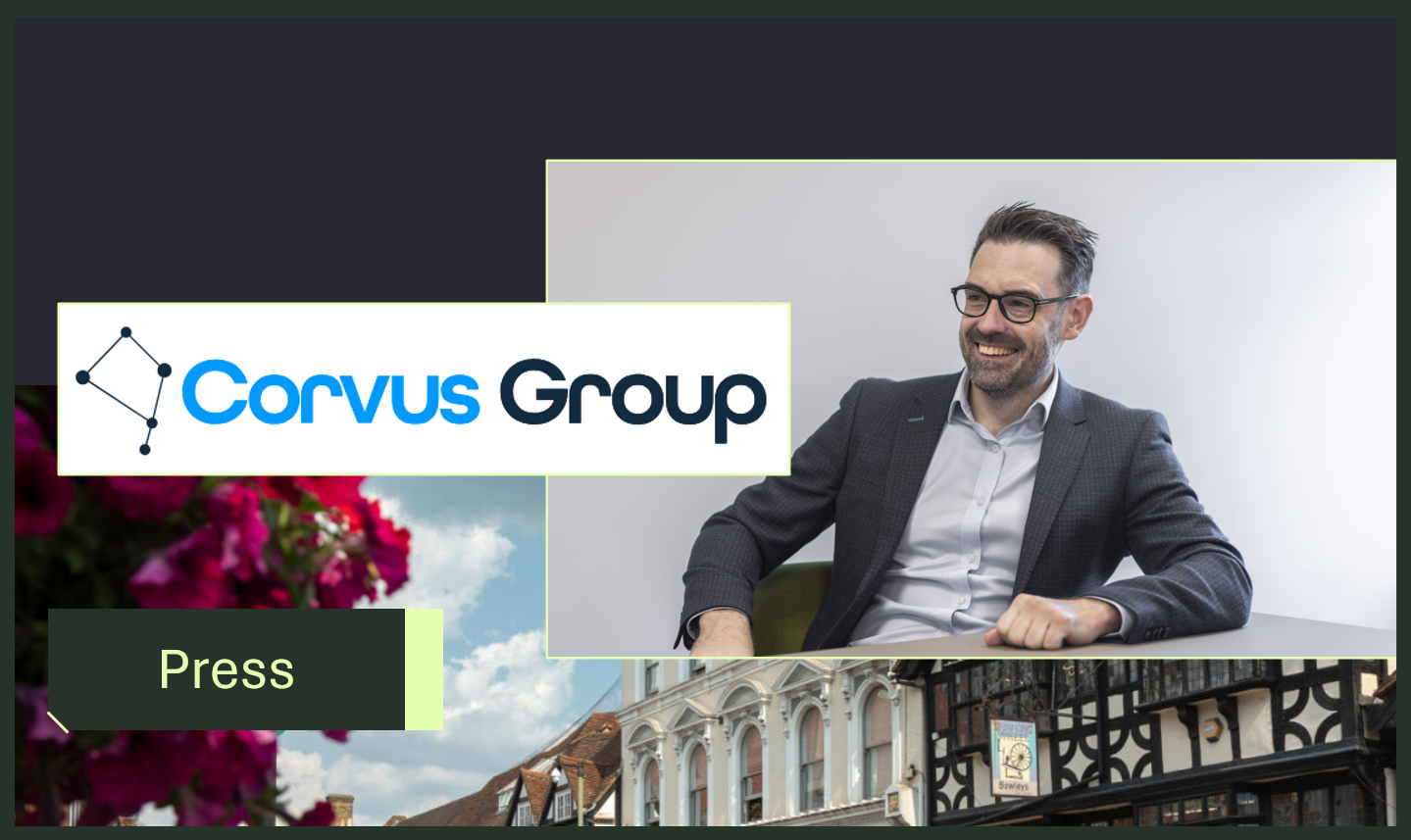-
What We Do
What We Do
Explore >
Up to top (this text gets replaced by JS) Up a level (this text gets replaced by JS)
- Our Solutions to Your Problems
- Transform the Back Office
- Fortify Data Governance
- Simplify Regulatory Compliance
- Digitalise Client Servicing
- Adapted to Your Needs
- Global Firms
- Regional Specialists
- Here’s the Proof
- How we helped NZPT
- Products Products Explore >
- Partners
-
Insights
Insights
Explore >
Up to top (this text gets replaced by JS) Up a level (this text gets replaced by JS)
- Recognised as an industry leader
- Awards
- Contact Us
We sat down with James McCarthy, co-founder of Corvus Group, to hear about the launch of his new business and why he selected Quantios Core to help future-proof Corvus Group for successful growth.
James McCarthy, co-founder of Corvus Group:
Q: What does your business do?
James M: We established Corvus Advisers in 2019 to provide legal, operational and compliance services to the private equity, venture capital and wider asset management industries. However, we have aspired to launch a fund administration business for many years, something we have just achieved with the launch of Corvus Administration. Corvus Administration will now sit alongside our existing advisory business (which is now called Corvus Advisory) under the newly launched ‘Corvus Group’ brand.
Q: What made you think of investing in new technology?
James M: As we will be building our fund administration business from the ground up, we are not encumbered by legacy hardware or software. This gives us an opportunity to build a truly state of the art tech stack, leveraging all of the most recent developments in fund administration technology.
Administration services are often heavily procedural and historically many of these processes have been run manually. We want to utilise automation and the use of workflow management tools to minimise the risk of errors and oversights whilst maximising efficiencies. We are also keen achieve a seamless integration between our various technology solutions.
We are all too aware of the issues that can arise when relying on disparate software solutions to deliver a joined-up service, so having a tech stack comprised of solutions which can communicate with one another in a near seamless way is extremely important to us. When doing our research, speaking with existing clients and looking at competitors, Quantios and NavOne were mentioned frequently, and in a very positive light, in terms of workflow and static data management tools. During our meetings with the Quantios team, we discovered that, in addition to workflows and data management tools, Quantios Core offers an out-of-the-box solution which can do far more than this (including fund accounting).
We are also firm believers in the power of cloud-hosted software solutions versus more traditional, locally hosted, software solutions. Quantios Core being hosted in the cloud was therefore another significant positive from our perspective.
Q: So the fact that Quantios Core is cloud-based was an important
consideration?
James M: Absolutely, it was very important. There are so many benefits to investing in cloud solutions. Managing and maintaining a locally housed/hosted technology platform requires significant investment in an in-house technology team to secure and maintain it. This comes at a significant cost, which is ultimately passed on to clients. Reliance on cloud-based solutions allows us to leverage the expertise of tech experts within our technology providers’ teams, whilst fully utilizing the power of Microsoft Azure. This in turn allows us to keep our spend on in-house tech support to a sensible level.
Furthermore, running software updates on locally hosted systems can become hugely problematic. Significant version changes/upgrades can take material time and resource to implement whilst being disruptive to regular operations and potentially creating major issues with (or due to) the data held on the legacy software. One of the many benefits of cloud-based solutions is that customers benefit from on-going, platform-wide upgrades.
The fact that these upgrades are implemented on an on-going basis means that the technology is always evolving, and there is (generally speaking) a constant improvement/refinement in the technology at our disposal. Also, with system changes being introduced on an incremental basis, staff can become accustomed to changes in a far more manageable way. This is in stark contrast to having to ‘re-learn’ a new version of software which has been materially changed in form and function compared to the version that preceded it.
Finally, as previously mentioned, capacity for system integration is key for us. By utilising Microsoft Azure enabled/embedded solutions, we maximise our prospects of creating a tech stack in which each piece of component software communicates with the others on a seamless basis.
Q: Which package did you decide to sign up for?
James M: We have signed up to an annual subscription, together with the Private Equity and Alternative Investment fund's module, to begin with. However the beauty of this arrangement is that, as time goes on and our business grows, we can look to flex our software package to match our needs.
